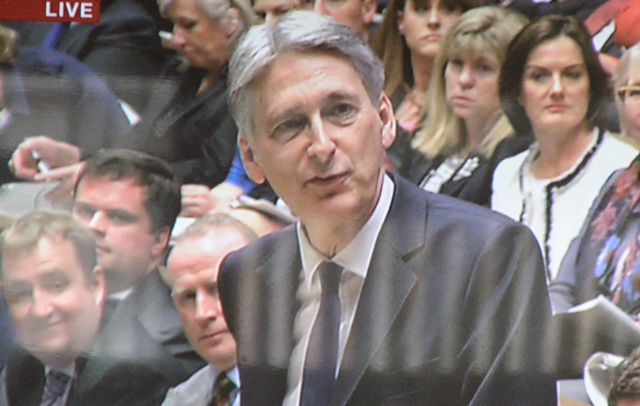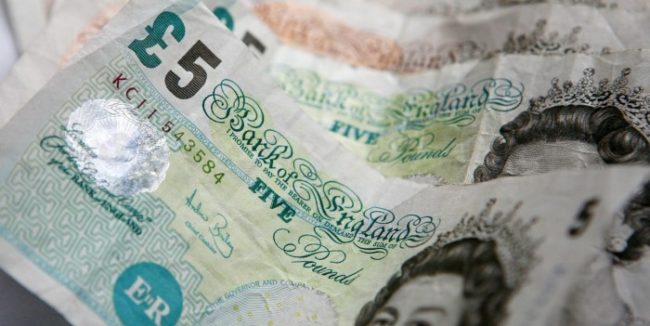Budget: Your at-a-glance guide to the 2017 Budget

Chancellor Philip Hammond has delivered his last Budget before it is moved to the autumn. These are the key points:
Economy & Borrowing:
- UK second-fastest growing economy in the G7 in 2016
- Growth forecast for 2017 upgraded from 1.4% to 2%
- But GDP downgraded to 1.6%, 1.7%, 1.9% in subsequent years, then 2% in 2021-22
- Annual rate of inflation forecast to rise from 2.3% to 2.4% in 2017-18 before falling to 2.3% and 2.0% in subsequent years
- A further 650,000 people expected to be in employment by 2021
- Annual borrowing £51.7bn in 2016-17, £16.4bn lower than forecast
- Borrowing forecast to total £58.3bn in 2017-18, £40.6bn in 2018-19, £21.4bn in 2019-20 and £20.6bn in 2020-21
- Public sector net borrowing forecast to fall from 3.8% of GDP last year to 2.6% this year, then 2.9%, 1.9%, 1% and 0.9% in subsequent years, reaching 0.7% in 2021-22. But borrowing still predicted to be £100bn higher by 2020 than forecast in March 2016
- Debt rose to 86.6% this year, but will fall to 79.8% in 2021-22
Taxation
- The main rate of National Insurance contributions for the self-employed to increase from 9% to 10% in April 2018 and 11% in April 2019
- The Class 4 rate is levied on earnings of more than £8,060 a year
- The increases, which will apply to earnings under £43,000, will raise £145m a year by 2021-22 at an average cost of 60p a week to those affected. All Class 4 earnings above £43,000 will continue to be taxed at 2%
- Class 2 National Insurance, a separate flat rate contribution paid by self-employed workers making a profit of more than £5,965 a year, is to be scrapped as planned in April 2018
- Taken together, millions of self-employed workers could pay an average of £240 a year more but ministers say those earning £16,250 will pay less
- No changes to National Insurance paid by the employed and employers or to income tax or VAT
- Personal tax-free allowance to rise as planned to £11,500 this year and to £12,500 by 2020
Business rates and taxation
- £435m for firms affected by increases in business rates, including £300m hardship fund for worst hit
- Pubs with rateable value of less than £100,000 to get a £1,000 discount on rates they would have paid
- Rate rises for businesses losing existing relief will be capped at £50 a month
- A tax avoidance clampdown totalling £820m to include action to stop businesses converting capital losses into trading losses and introduction of UK VAT on roaming telecoms services outside the EU

Entrepreneurs
- Reduction in tax-free dividend allowance for shareholders and directors of small private firms from £5,000 to £2,000
- The measure will come into force in April 2018, raising £2.63bn by 2021-2022
- Measures to tackle abuse of overseas pension schemes
Booze, tobacco and petrol
- No increases in alcohol or tobacco duties on top of those previously announced
- A new minimum excise duty on cigarettes based on a packet price of £7.35
- Tobacco will rise by 2% above Retail Price Index (RPI) inflation, with a packet of 20 cigarettes costing 35p more
- Duty on beer, cider, wine and spirits will increase in line with RPI inflation
- This will equate to 2p on a pint of beer, 1p on a pint of cider, 36p on a bottle of whisky and 32p on a bottle of gin
- Vehicle excise duty rates for hauliers and the HGV Road User Levy frozen for another year

Infrastructure
- Transport spending of £90m for the north of England and £23m for the Midlands to address pinch points on roads
- £690m competition fund for English councils to tackle urban congestion.
- £270m for new technologies such as robots and driverless vehicles
- £16m for 5G mobile technology and £200m for local broadband networks
- £250m in funding for Scottish Government, £200m for Welsh Government and £120m for Northern Ireland Executive
Health
- £100m to place more GPs in accident and emergency departments for next winter
- Additional £325m to allow the first NHS Sustainability and Transformation Plans to proceed
- An extra £2bn for social care over next three years, with £1bn available in the next year
- Long-term funding options to be considered but so-called “death tax” on estates ruled out
- Most sugary soft drinks to be taxed at 24p per litre as part of plans to reduce childhood obesity
Women
- New funding totalling £20m to support the campaign against violence against women and girls
- A further £5m committed to project to celebrate the centenary of women first getting the vote, and to educate young people about its significance
- Funding of £5m to support people returning to work after a career break

